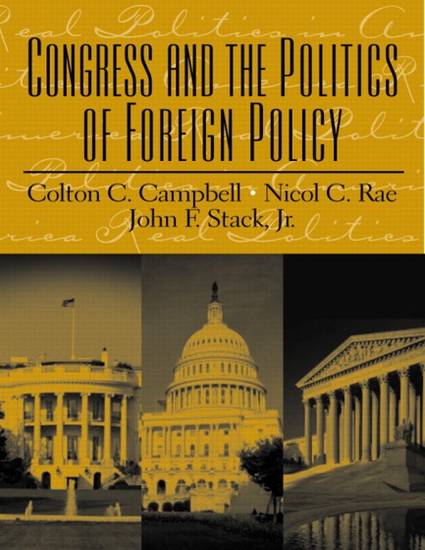
Contribution to Book
Congress : How Silent A Partner?
CONGRESS AND THE POLITICS OF FOREIGN POLICY
(2003)
Abstract
In this chapter we explore the changing parameters of congressional action in foreign policy. The Constitution implicitly requires both competition and cooperation between the legislative and executive branches in this area. Historical patterns and individual attitudes have deviated between conflict and compromise. Congress and the presidency at times work as tandem institutions that need each other's support and active acquiescence to succeed. At other times they compete fiercely, such as when legislators see the executive as contemptuous and arbitrary, if Congress perceives American sovereignty threatened, or when executive officials view Congress as inefficient and intrusive. While the dominant reality is that the president has emerged as the ultimate decider, especially during armed conflict, lawmakers are finding new and creative ways to contribute to, and influence, foreign policy. The classic congressional method for exercising foreign policy prerogatives through legislation is being supplemented by an array of alternative techniques, such as Senate confirmation of ambassadorial nominees, treaty ratification, and the mobilization of ethnic interest groups in pursuit of parochial objectives. At various points, the Supreme Court has affirmed Congress's part in foreign policy making. And, greater congressional activism over the past decade is due to an increase in the number of actors attempting to influence American foreign policy, among them the rise of ethnic lobbies.
Keywords
- Foreign relations,
- Law and legislation
Disciplines
- Law and
- Legislation
Publication Date
2003
Editor
Colton C. Campbell, Nicol C. Rae, John F. Stack, Jr.
Publisher
Prentice Hall
ISBN
130421545
Citation Information
John F. Stack Jr. and Colton C. Campbell, Congress : How Silent A Partner?, in CONGRESS AND THE POLITICS OF FOREIGN POLICY, (Colton C. Campbell, Nicol C. Rae, John F. Stack, Jr., eds., Prentice Hall, Upper Saddle River, NJ, 2003).
